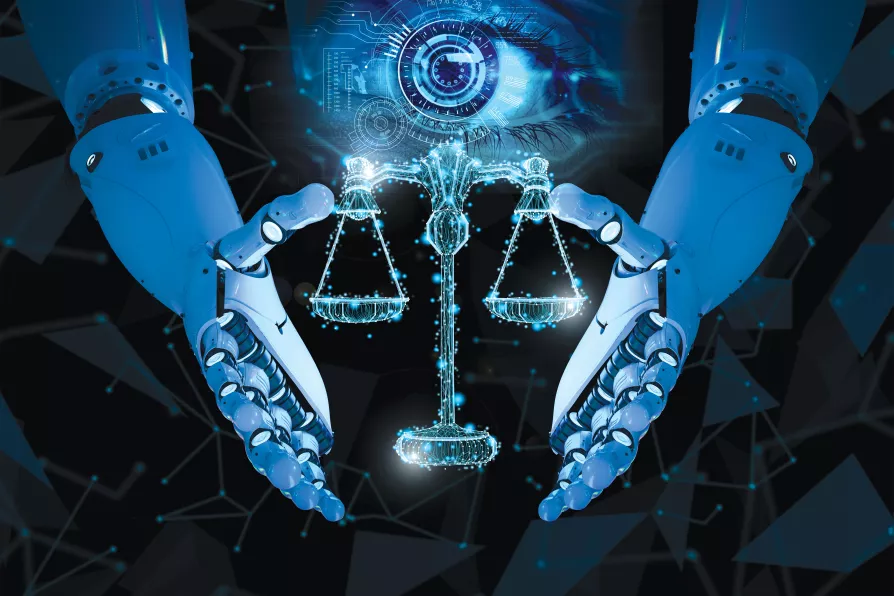The language of humiliation is a step towards a second civil war, argues RAMZY BAROUD

 MORE QUESTIONS THAN ANSWERS: AI Truth Machine / LIT Law Lab, Johannes Kepler University (AT)
[Ars Electronica/flickr/CC]
MORE QUESTIONS THAN ANSWERS: AI Truth Machine / LIT Law Lab, Johannes Kepler University (AT)
[Ars Electronica/flickr/CC]
OUR courts are in crisis: buildings are crumbling; serious delays are endemic; legal rules are labyrinthine; very few citizens without means are eligible for legal aid; and the judiciary in dress and thought is old-fashioned and hierarchical, its often ill-judged attempts at self-reform and modernity distorted by long-entrenched class privilege.
Is artificial intelligence part of the answer to these and other pressing legal problems or part of a dystopian future?
In Samuel Butler’s 19th century novel Erewhon, the citizens of his imaginary country were concerned that evolution in humans is gradual but in mechanics rapid, concluding that machines would soon surpass and supplant them.

Digital ID means the government could track anyone and then limit their speech, movements, finances — and it could get this all wrong, identifying the wrong people for the wrong reasons, as the numerous digital cockups so far demonstrate, warns DYLAN MURPHY

Politicians who continue to welcome contracts with US companies without considering the risks and consequences of total dependency in the years to come are undermining the raison d’etre of the NHS, argues Dr JOHN PUNTIS

Mental health fears push Peers to change law on IPP torture sentences, reports Charley Allan










